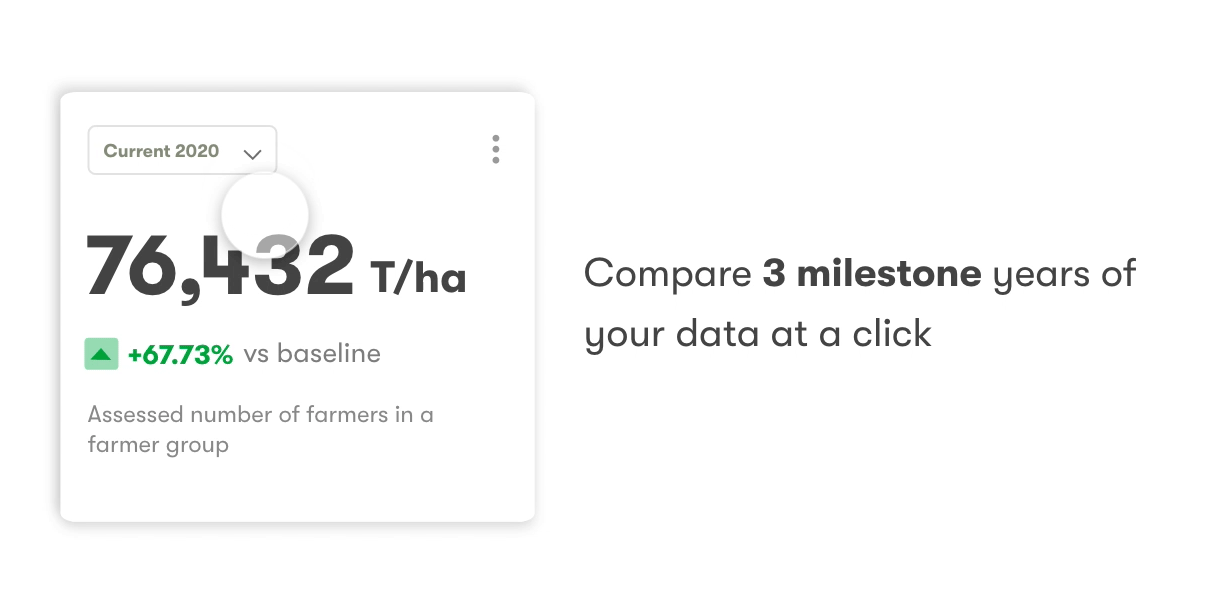REVITALISING LIVELIHOODS, LANDSCAPES AND SOME OF THE WORLD’S RAREST COFFEES
In the rich volcanic soils that line the shores of Lake Kivu in the Democratic Republic of the Congo, grow some of the world’s most exclusive arabica beans.
Photo Credit - Deo Kujirakwinja, WCS
The eastern Democratic Republic of the Congo has seen years of economic and political turmoil, which has impacted the well-being of local communities and threatened the unique biodiversity of the area. Now, a new partnership will promote better livelihoods for local farmers and protect the region’s endemic and critically endangered Grauer’s gorilla.
The Gorilla Coffee Alliance was launched in 2021 by the United States Agency for International Development (USAID); Nespresso; Olam Food Ingredients (ofi); international nonprofits, TechnoServe and the Wildlife Conservation Society; and Congolese social enterprise, Asili. Over five years, this initiative will partner with 8,500 farming households to improve their coffee production and sales and reduce poaching and deforestation around Kahuzi-Biega National Park in DRC’s South Kivu province.
Kahuzi-Biega National Park is a UNESCO World Heritage Site and one of the few remaining habitats of the world’s 6,800 estimated remaining eastern lowland or Grauer’s gorillas. But, political unrest, population growth, and the absence of sustainable economic opportunities in the area have put the national park and the wildlife it protects at risk from illegal logging, poaching, and mining.
The Gorilla Coffee Alliance, which is made possible due to the support of the American people through USAID in partnership with Nespresso’s Reviving Origins program and ofi, aims to revitalize coffee production in regions impacted by adversities ranging from climate change to conflict. The Alliance will train farmers in regenerative agriculture and help local entrepreneurs and farmers set up nurseries that provide high-quality coffee and shade-tree seedlings. It will also work with coffee washing stations to enable them to access finance and technical assistance that will improve their capacity to process coffee at quality levels demanded by Nespresso and other specialty markets. Participating washing stations are expected to double their output by 2026.
Taking a holistic approach, the Alliance will also work with local families to improve community resilience, health, and engagement. The initiative will build the entrepreneurial skills of young and Indigenous people, particularly in non-farming households, so they can start environmentally sustainable businesses. It will also train families in communities surrounding the forest to enable them to improve their nutritional status and financial literacy and plant kitchen gardens. Through the Asili platform, the Alliance will improve access to health clinics and clean water points. Lastly, it will help to mobilize existing community governance structures to support conservation and combat poaching, logging, and mining.
Creating transformative impact:
Empowering farmers 10,000 coffee farmers from communities bordering the Kahuzi-Biega National Park will receive support to:
| |
Promoting healthier coffee communities
| |
Regenerating coffee ecosystems Deforestation, poaching and illegal mining will be reduced over 100,000 hectares of the Kahuzi-Biega National Park along Lake Kivu by:
|
Progress snapshot (Dec 2022):
- US$1.9 million generated in annual sales for supported farmers
- US$925,900 provided in total agricultural finance to support on-farm activities
- 4,732 coffee farmers trained (2,173 women) on pruning, soil health, and shade tree management
- 92,315 old coffee trees pruned by an ofi-trained youth team • 927,957 coffee seedlings distributed to over 1,500 farmers (431,227 in FY22 & 496,729 in FY23)
- 225 youth (132 women) in the community received training on entrepreneurship skills
